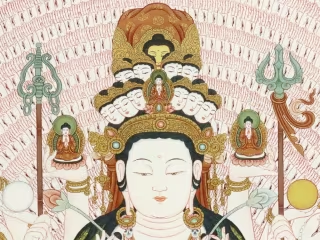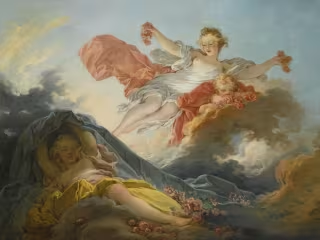Idun: Goddess of Youth and Rejuvenation
0
Ghostwriter
Blog Writer
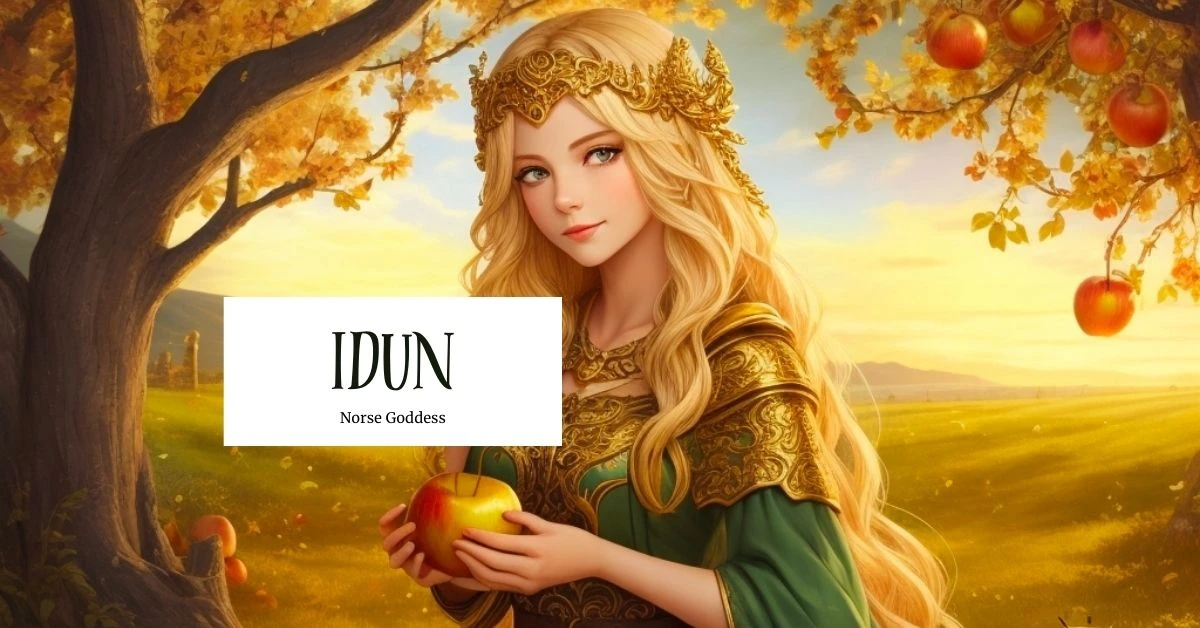
In the realm of Norse mythology, a revered deity’s paramount duty lies in safeguarding the elixir of youth and vitality, thereby ensuring the perpetual spring of life for the gods. This deity is Idun, a goddess whose significance transcends far beyond her role as a guardian of apples. With a deep dive into the vast expanse of Norse mythology, Idun’s intricate nature is revealed by examining her multifaceted titles, abilities, characteristics, traits, and symbols, as well as the festivals and rituals dedicated to her divine presence.
Overview of Idun
Derived from the Old Norse language, the name “Idun” bears a rich meaning, signifying “the young one” or “the rejuvenator” (“Idun”). In Norse mythology, Idun, also known as Iðunn or Iduna, is the protector of the sacred apples of youth (Mark). These apples embody both a physical fruit and the cyclical nature of life, representing the invigorating forces at existence’s core. However, Idun’s significance transcends her immediate function, given that her presence contributes directly to the gods’ enduring strength and vitality (“Idun”). As a nurturing and compassionate figure, Idun occupies a unique and revered place in the pantheon, encapsulating the essence of rejuvenation, a critical aspect of Norse cosmology.
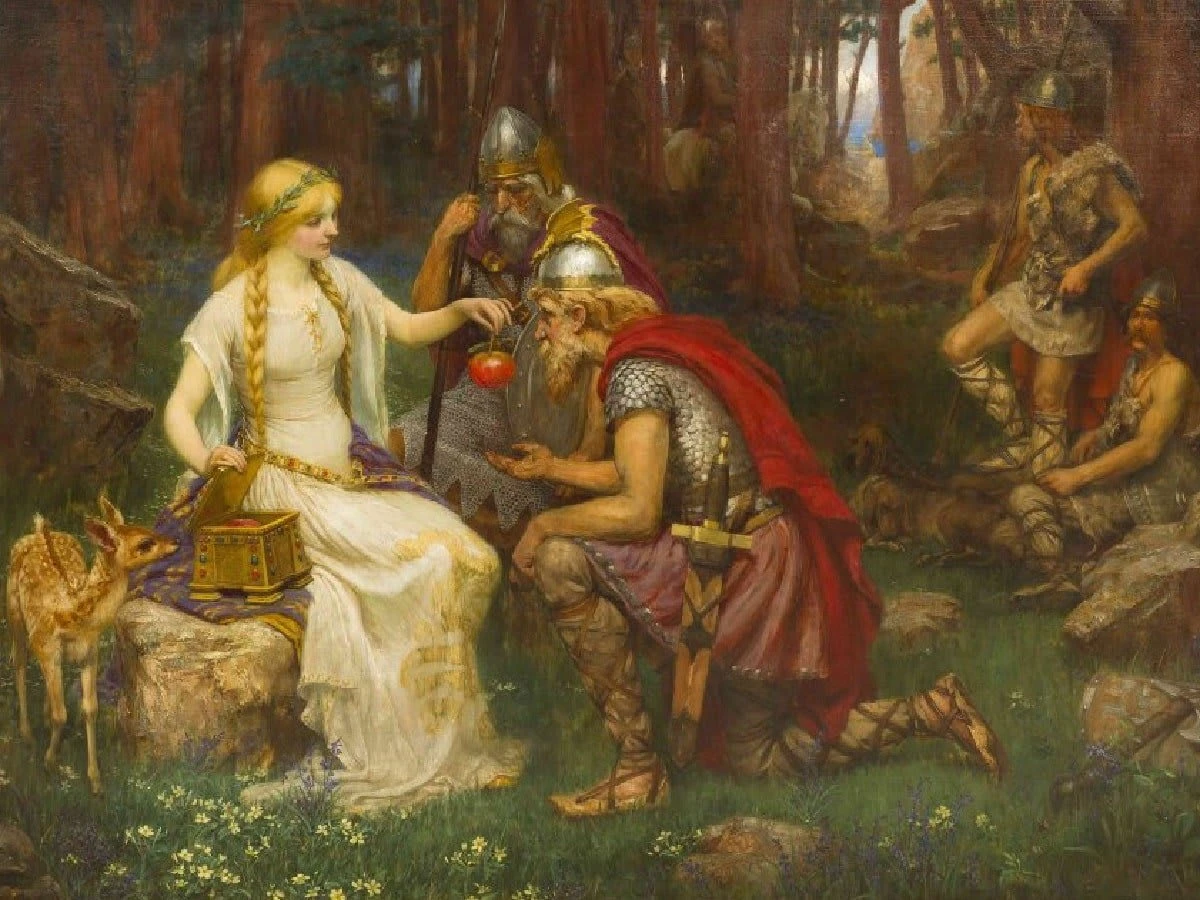
Source: History Cooperative
Titles
Guardian of the Golden Apples
Bearer of Eternal Youth
Custodian of Life’s Nectar
Abilities
Idun’s mastery over the mythical apples of youth is a fundamental and indispensable aspect of her dominion and an integral component of Norse mythology (“Idun”). These vitality apples are the gods’ source of strength and longevity, and their well-being is intrinsically linked to the fruit’s existence (Mark). However, Idun’s role extends far beyond mere fruit-bearing, as she also serves as the appointed guardian of the apples, shielding the gods from the effects of aging and the relentless march of time. Her unparalleled ability to nurture and safeguard these apples reflects her divine connection to the timeless cycle of existence, underscoring her central role in maintaining the ageless vitality of the gods. Ultimately, the consumption of the apples by the gods serves as a pact with the eternal, an arrangement that Idun ensures is upheld with great care and meticulous attention to detail.
Characteristics
The physical portrayal of Idun is inherently aligned with her pivotal role as a harbinger of eternal youth (“Idun in Norse Mythology | Origin, Role & Symbol”). This characteristic is often attributed to her appearance in Norse mythology, where she is revered as a goddess of great vitality, resonating with the perpetual spring of life she embodies. Her radiant visage, exuding a sense of vibrancy, is further enhanced by her lustrous hair, described as a cascade that shimmers akin to sunlight. Her eyes, exuding a pearl of wisdom that transcends ages, merge seamlessly to encapsulate the essence of beauty and sagacity (Mark), complementing her embodiment of the grace inherent in nature.
Moreover, her aura of tranquility envelops those around her, instilling a sense of security and solace. This gentle yet resolute demeanor is the hallmark of her guardianship, reflecting her solemn duty as the protector of life’s most treasured essence – the timeless vitality encapsulated within the apples she holds in her care (“Idun”). Thus, Idun’s depiction is a testament to the enduring power of nature and the importance of preserving its sanctity.
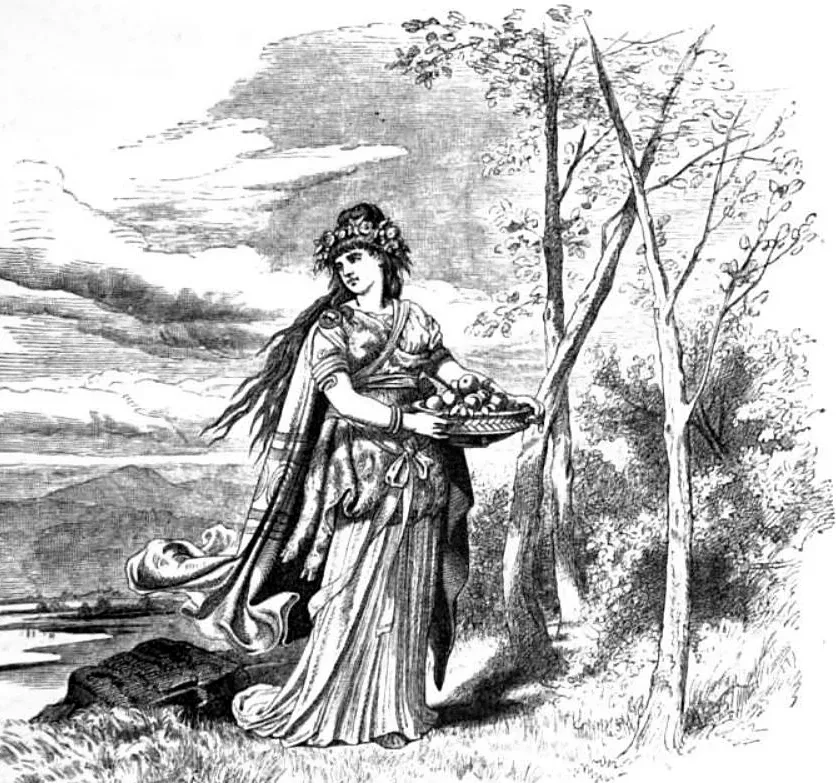
Source: Myths and Folklore Wiki
Traits
Idun stands out not just for her physicality but for the virtues that define her role as a guardian and nurturer (Wikipedia Contributors). Her compassion, patience, and unwavering commitment are the foundation of her personality, reflecting the harmony of her sacred duty. As a custodian of the gods’ well-being, she exudes a nurturing love that cultivates a thriving environment and fosters unity (“Idun”). Her dedication is not limited by time, as her steadfastness in safeguarding the apples symbolizes a loyalty that transcends the ages (“Idun – New World Encyclopedia”). These qualities make her a deity deserving of reverence and admiration. Beyond being an apple-bearer, Idun is a beacon of virtues that sustain the gods and echo throughout the cosmos, promoting unity, strength, and eternal renewal. Her character shines bright, and her role as a guardian inspires and uplifts those around her.
Symbols
The symbolism surrounding Idun carries deep resonance, encapsulating her essence as a life-giver and nurturer. Her most prominent symbol, the golden apple, represents much more than its tangible form. It embodies the core of her role – the preservation of youth and immortality, a beacon of unwavering vitality (“Idun”). In addition, Idun’s association with blossoming flowers and lush orchards deepens her symbolic resonance, reflecting the cycles of renewal and growth that echo the perpetual rhythms of nature (“Idun in Norse Mythology | Origin, Role & Symbol”). The unfurling petals and fruit-bearing branches align with her guardianship, reinforcing the concept of eternal rejuvenation. The symbolism encompassing Idun forms a mosaic that mirrors her divine role, woven with the threads of youth, vitality, and the ceaseless cadence of life’s renewal.
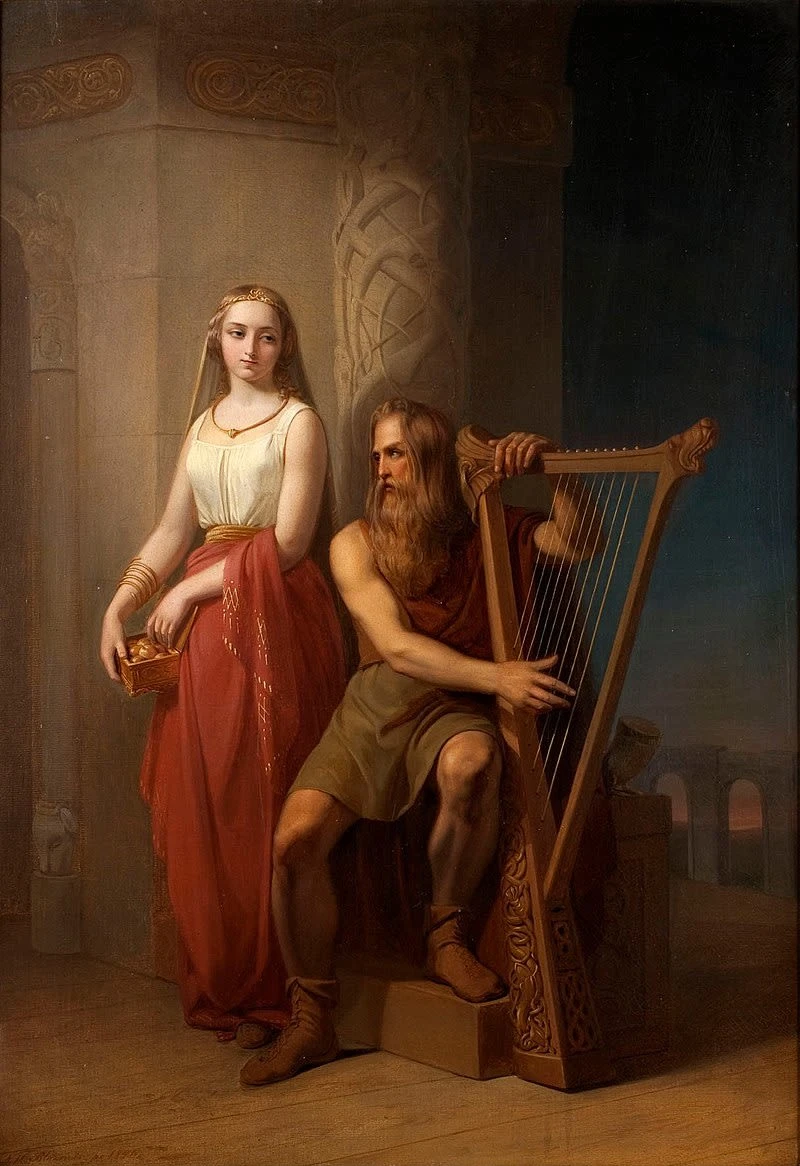
Source: Wikipedia
Festivals and Rituals
The “Festival of Apples,” an event strategically aligned with the spring equinox. This occasion, marked by offerings of fruits and flowers, emerges as a tangible expression of gratitude for Idun’s unwavering guardianship (“Idun – New World Encyclopedia”). These offerings, as a form of reverence, symbolize the acknowledgment of her role in safeguarding the gods’ eternal strength. The rituals undertaken during this festival are multifaceted, including earnest prayers for perpetuating power and youth (“Idun in Norse Mythology | Origin, Role & Symbol”). These rituals reinforce a profound connection between the gods and their beloved protectors, underscoring the symbiotic relationship between divinity and vitality. Through these time-honored observances, Idun’s presence continues to resonate, fostering a sense of unity and renewal within the pantheon.
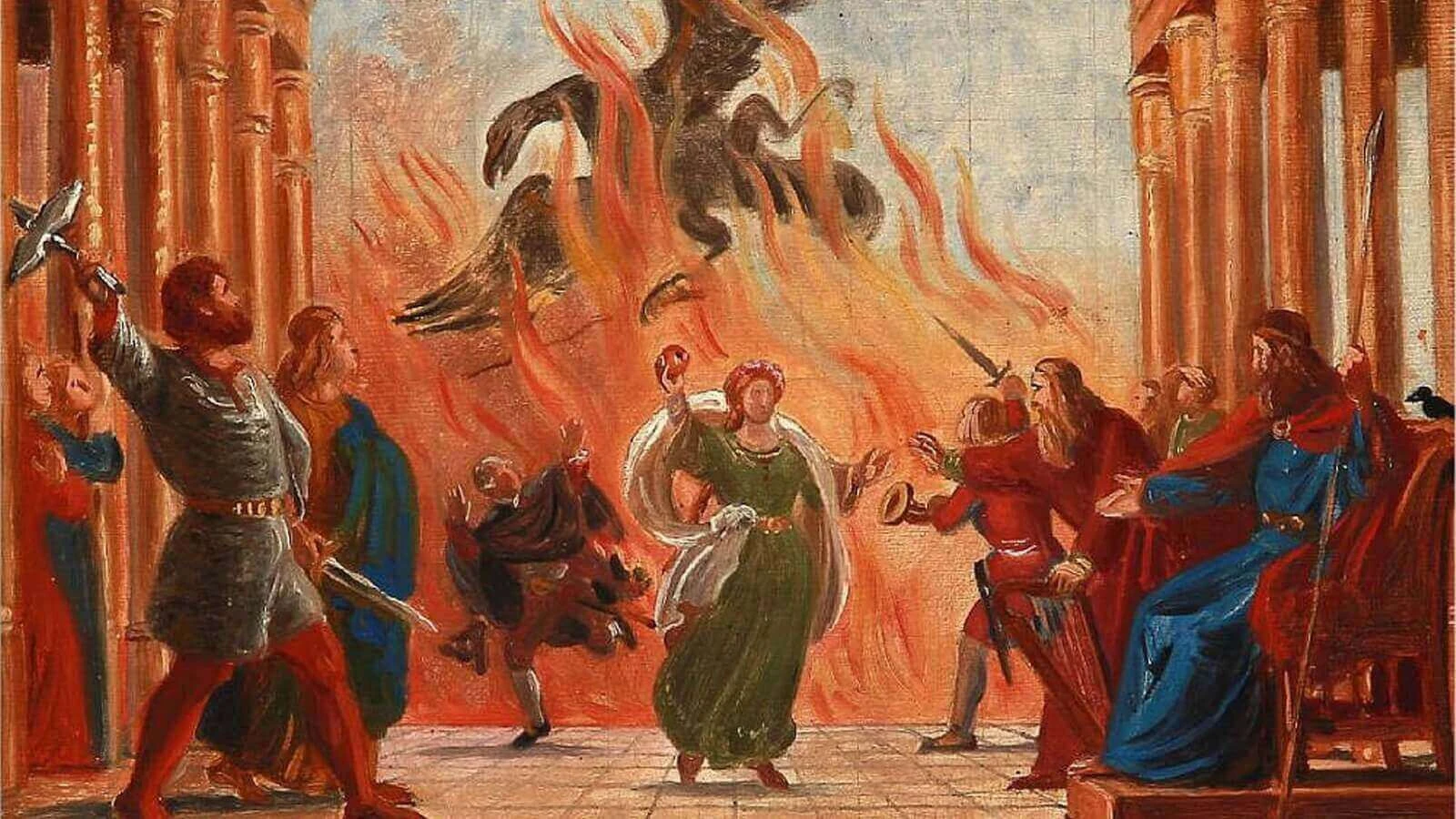
Source: Odin's Treasures
Legends associated with Idum
As a revered goddess responsible for guarding perpetual youth and vitality, Idun’s legends are steeped in intricate details and fascinating complexities. Through a closer examination of the various myths surrounding her existence, we can better understand her multifaceted nature and the profound impact she had on the Norse pantheon of deities. With her ability to sustain the vigor and vitality of the gods, Idun holds a significant place in this ancient and fascinating belief system.
Origin story
The enigmatic origins of Idun, the mythical deity, have been the subject of much scholarly discussion and debate. While some accounts place her as a crucial member of the Aesir pantheon (Mark), others attribute her ancestry to Ivaldi and Gróa, adding a complex and intricate layer to her character (Wikipedia Contributors). Regardless of the lack of a definitive consensus on her beginnings, one thing remains abundantly clear: Idun bears the crucial responsibility of safeguarding the essence of life, which is interwoven into the very fabric of existence. Though her role as the guardian of life’s essence is not frequently mentioned, it underscores her immense significance within the celestial hierarchy.
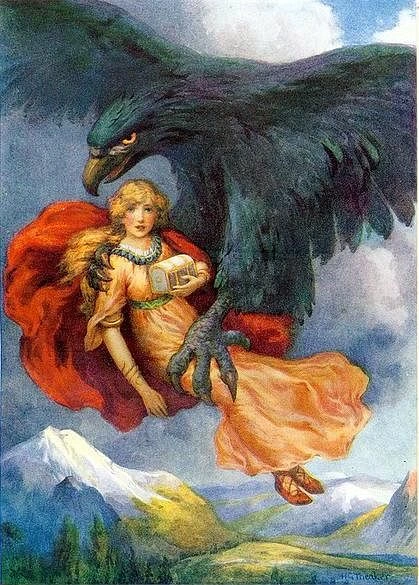
Source: World History Encyclopedia
The Abduction of Idun’s Apples
The saga of Idun’s apples is a captivating and timeless tale that not only entertains but also sheds light on the intrinsic relationship between Idun’s custodial responsibilities and the gods’ timeless potency. This legendary story recounts the cunning trickster deity Loki’s nefarious scheme to abduct Idun and the prized apples she guards from the sacred confines of Asgard. As the guardian of the sacred apples of youth, Idun’s role becomes paramount, as her apples are the source of the gods’ agelessness. By severing the lifeline that sustains the gods’ vitality, Loki effectively causes their once-mighty strength to wane, and their eternal youth begins to slip away. This decline highlights the fundamental connection between Idun’s apples and the gods’ everlasting vigor.
The gods, realizing the source of their woes, unite to apprehend Loki and undo his evil deed. The resolution of this tale culminates in Loki’s eventual compliance, as he is compelled to restore Idun to her rightful place among the gods. The restitution of the apples heralds a renewal of the gods’ strength and reaffirms the apples’ status as a symbol of eternal rejuvenation (Mark).
Beyond its narrative charm, this legend symbolizes the profound bond between Idun’s apples and the foundation of the gods’ timeless potency. It underscores Idun’s critical role in maintaining the balance of the gods’ power and vitality. Moreover, it highlights the importance of vigilance and stewardship in safeguarding the sacred artifacts that sustain the gods’ immortality. The saga of Idun’s apples serves as a timeless reminder of the delicate balance between the forces of good and evil and the role that guardians like Idun play in preserving the sanctity of the divine realm.
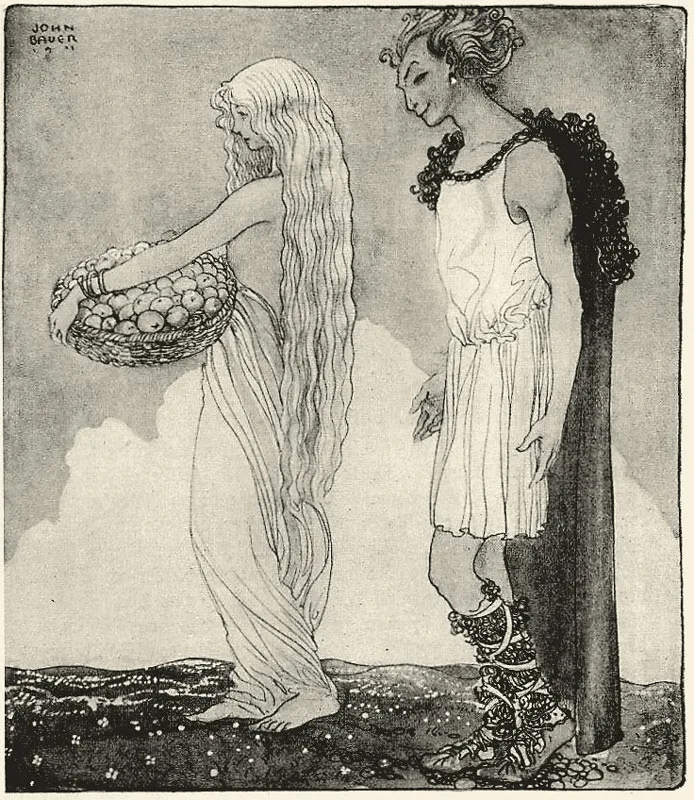
Source: Apples & People
The Treachery of Thjazi
The mythological tale of the “Treachery of Thjazi” is a compelling narrative that explores the unyielding pursuit of power and the lengths one may go to acquire it. Thjazi, a formidable eagle giant, harbors a covetous desire for the transformative potency encapsulated within the mythical apples of Idun, driven by an insatiable yearning for their remarkable properties. His unrelenting pursuit culminates in the abduction of Idun, plunging the realm of the gods into a profound crisis that reverberates with the echoes of diminished vitality and existential vulnerability.
Only through the intervention of the cunning and resourceful Loki is Idun liberated from Thjazi’s clutches, embodying the virtues of bravery and strategic wit in the face of overwhelming adversity. The legend concludes with retribution befall Thjazi due to his treacherous ambitions (“Idun”), underscoring the intricate interplay between power, vulnerability, and the unwavering commitment of deities like Idun to safeguarding the sacred threads of existence.
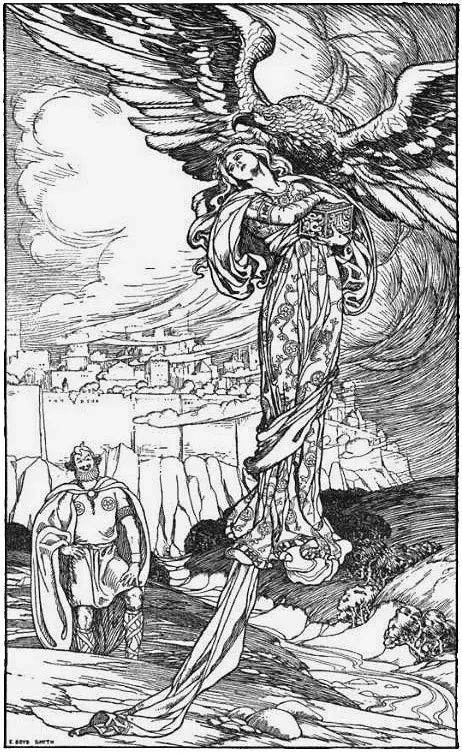
Source: Britannica
Influences of other religions/cultures on Idun
The goddess, Idun’s significance within Norse mythology is subtly shaped by neighboring belief systems, emphasizing the universal theme of eternal youth and vitality. While direct cross-cultural influences are not extensively documented (Mark), the agelessness and perpetual renewal symbolized by her apples become a universal motif, bridging diverse cultures and reflecting the shared human desire to transcend the limits of mortality. As the guardian of vital essence, Idun’s role and her apples as symbols of everlasting rejuvenation become points of convergence across religions. The archetype of perpetual renewal embedded in Idun’s spirit reflects the fundamental human need to seek transcendence and continuity amidst the ephemeral nature of existence, emphasizing the universal quest for timeless vitality.
Modern appearances
The significance of Idun, the Norse deity associated with eternal youth and vitality, has extended beyond the boundaries of mythology, permeating various aspects of popular culture. Notably, the Idunn Mons, a volcano located on Venus, was named in honor of the goddess. The iconic Swedish magazine Idun circulated from 1887 to 1963 prominently featured the goddess and her apples on its logo. Additionally, in the video game God of War (2018), players can collect items known as “Apples of Idun,” which provide a permanent health boost (“Idun”).
Final thoughts
Idun’s position in Norse mythology is not limited to a mere deity but extends to a guardian of an eternal wellspring. The tales surrounding her character add depth and complexity to her divine essence, highlighting her critical custodial role. From stories of abductions to agreements with the gods, Idun’s legends underscore the importance of her role in Norse mythology. Moreover, Idun’s aspiration for eternal youth continues to resonate within the human spirit. Ultimately, Idun’s impact on Norse mythology and her universal symbolism of everlasting vitality remain deeply ingrained in the intricate fabric of human narratives.
References
“Idun.” Mythopedia, mythopedia.com/topics/idun.
“Idun – New World Encyclopedia.” Www.newworldencyclopedia.org, www.newworldencyclopedia.org/entry/Idun. Accessed 20 Aug. 2023.
“Idun in Norse Mythology | Origin, Role & Symbol.” Study.com, 2023, study.com/academy/lesson/idun-norse-mythology-origin-role-symbol.html. Accessed 20 Aug. 2023.
Mark, Joshua J. “Idunn.” World History Encyclopedia, www.worldhistory.org/Idunn/.
Wikipedia Contributors. “Iðunn.” Wikipedia, Wikimedia Foundation, 14 Aug. 2019, en.wikipedia.org/wiki/I%C3%B0unn.
Did we miss something? Do you know another aspect of this legend? Don't hesitate to reach out!
Like this project
0
A client hired me to write several informative pieces on Norse Goddesses, and this blog post centers around the Goddess of Youth and Rejuvenation, Idun.
Likes
0
Views
187
Tags
Ghostwriter
Blog Writer



